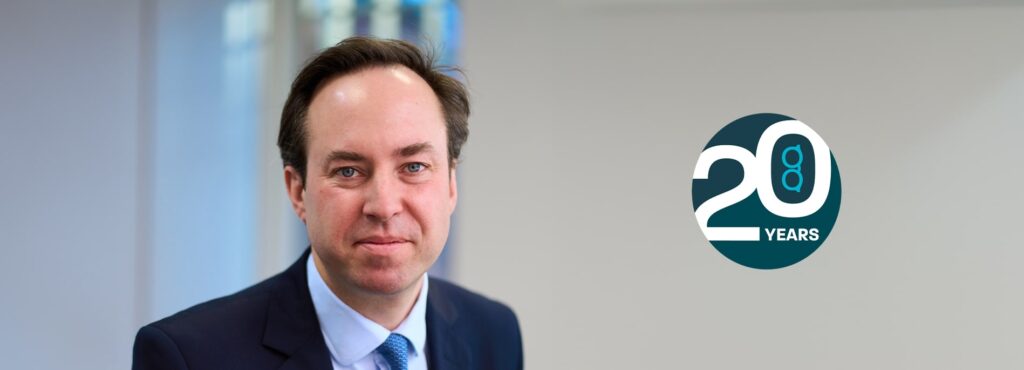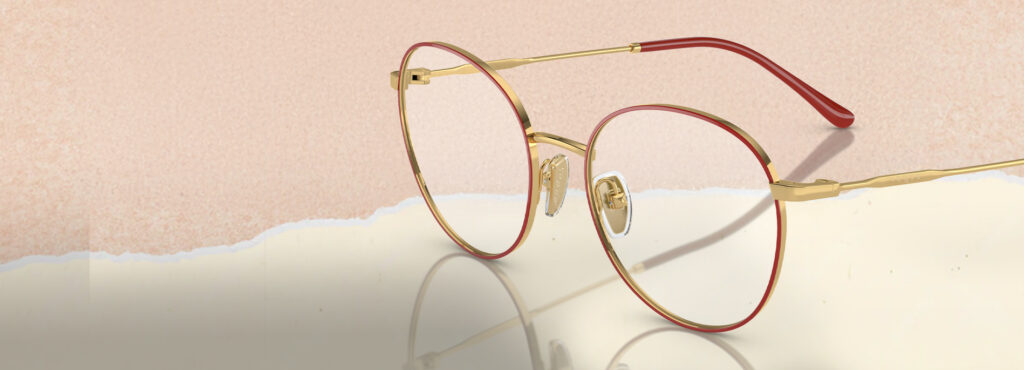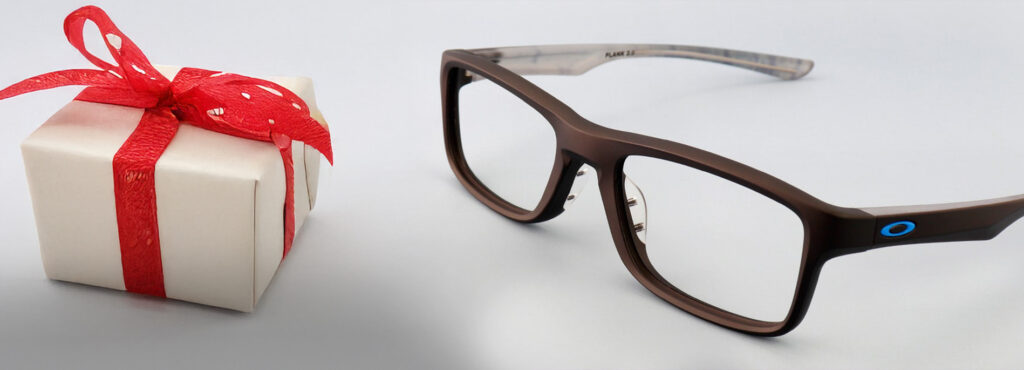British entrepreneur Jamie Murray Wells OBE established Glasses Direct in 2004 while he was a student at university. His mission was to offer affordable eyewear solutions for every budget. He aimed to compete with high street prices and help customers to make their eye health a priority. We interviewed him to find out more about the early days and how the brand has evolved since then. Get an inside look into the founding years of what became the UK’s leading online prescription glasses retailer.
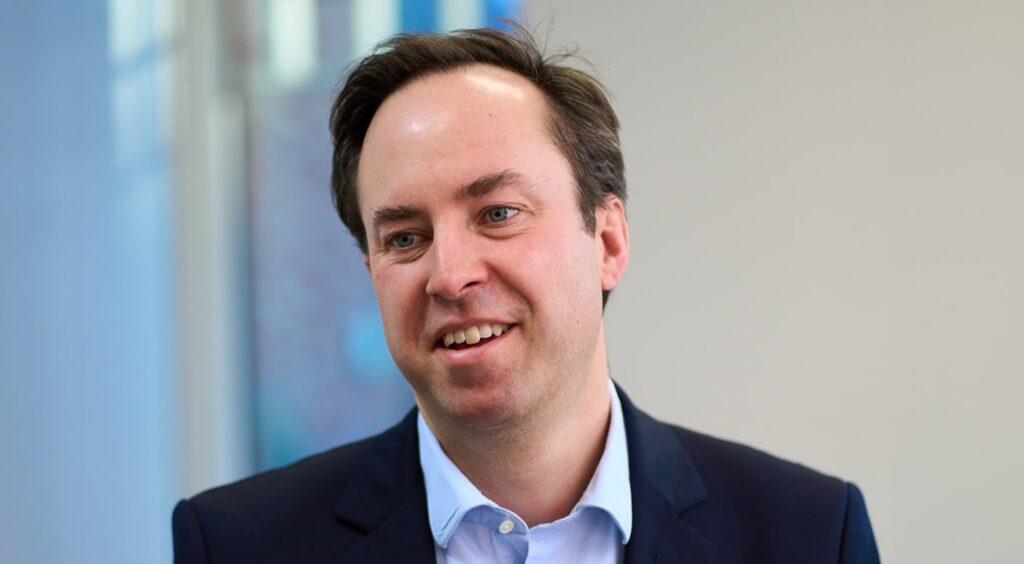
What first inspired you to create Glasses Direct as a brand?
I was initially inspired to provide greater value through more competitive pricing. Also, I wanted to deliver a better quality shopping experience and product as well. Pricing expectations in the industry shifted permanently as a result of Glasses Direct. The experience of buying a pair of glasses became more fun, accessible and there was more choice available. People could suddenly look at potentially 1,000s of different glasses options and have more control over their lens configurations.
We were not only able to source carefully so that we could provide great own-brand glasses but also through long-term cooperation with Essilor Luxottica, over 7 years, while I was there, we gradually worked with them to establish supply channels for multiple brands as well. We worked with them on the first manifestations of how those brands might appear online. In terms of product quality, shopping experience and value, I think we set the stage for online retail of optics.
What were the challenges of setting up a new business?
Selling glasses at scale online hadn’t really been done before so there were a lot of challenges to think about. The most important of all was to make sure that customer’s eye health was never compromised. We always took the view from the beginning that the number one priority in the business was eye health and their safety.
We invested a huge amount of capital, a huge amount of time and expertise from some of the most notable ophthalmic surgeons and dispensing opticians in the country. The most renowned ophthalmic minds came together to create the operating standards for Glasses Direct to exist. That was a challenge but it was also something we did very transparently and openly. We published those standards, what we called our supervision statement at the time, so that other online opticians could follow those standards and we could actually improve and establish a baseline of procedures for how to safely, remotely dispense a pair of glasses.
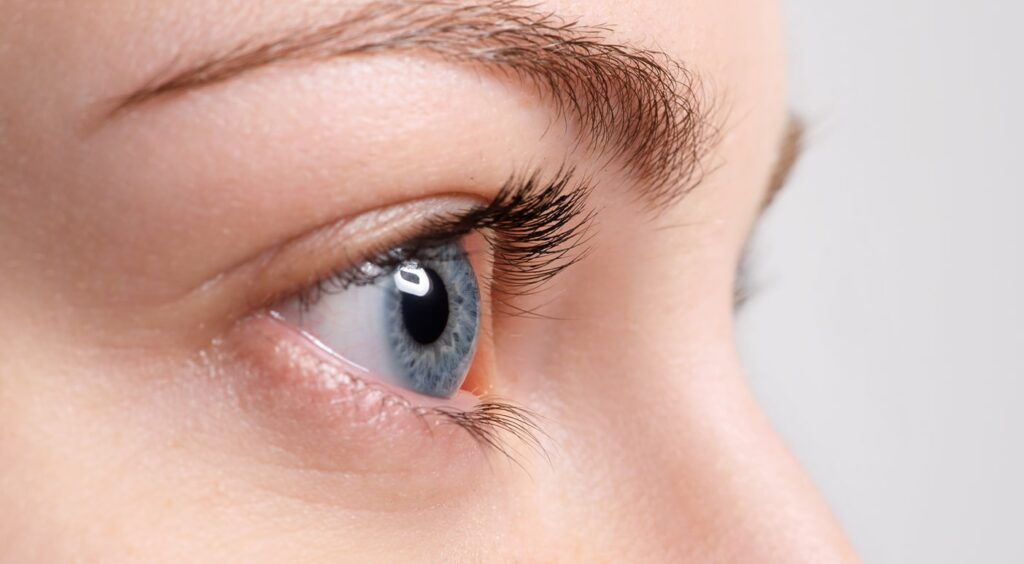
It sounds like there were a lot of challenges at the beginning
We were doing something a little different. First of all, getting compliance and the safety aspect was really important. But scaling a business comes with its own challenges as well. We were lucky to have fantastic people join the business along the way. We gained the support of some of the industries’ greatest, like Essilor Luxottica. They became an important long-term partnership for the business. You don’t set up a new business and make it successful on your own. We did that with the industry and with great people at our side.
How did you manage to make Glasses Direct stand out against the competition?
We were always innovating in terms of the customer journey. So if you think about some of the early innovations that we had out there in order to differentiate us. CUSTOMEYES was launched in 2005. That was our first virtual mirror. In 2005! Facebook had barely launched at that point. We were actually producing a virtual mirror*, where people could upload a photo of themselves, then superimpose an image of the frame front over their face and get a really good idea of how the different styles would look. The business had only been around for a year when we launched the first version of virtual mirror technology.
It became standard in glasses. But not just in optics, in retail generally. In 2005, I believe that there wasn’t any successful integration of a virtual mirror into a commercial flow online. I think we were the first to do that globally. There had been others who had done virtual mirrors. But no one had successfully made it part of a retail experience or journey online all the way to checkout. The fact that we did that in 2005 is pretty amazing. It not only showed how the virtual mirror could operate in optics, it also showed how it could become an important tool in retail, which it now has become across lots of high-touch products.
That kind of innovation continued in the business. In 2006, we launched the Best Fit Machine so you could actually order and personalise the whole website according to the numbers on your existing pair of glasses. Again, two years after we launched. The Best Fit Machine was also ahead of its time. Personalisation is still a massive theme in ecommerce. Well, we were personalising the entire site in 2006.
Then the Home Trial was launched in 2008, where you could receive a box of frames to try on. The Home Trial was launched in 2008 after years of development. The first boxes we put together actually included a mirror so you could see yourself. That trust we placed in our consumers, was unsurpassed. It became an important tool in online optics across the board.
So, that sort of pace of innovation and the customer focus I engrained, of continually tuning the proposition towards customer’s needs, was a key differentiator to our online competition. It also set the standards and paved the way for what consumers expected.
Really thinking deeply about that journey and in quite an analytical way at how each of those innovations would affect conversion was important. Those kind of things made me proud of what we were but it was an important foundation for online retail more generally.
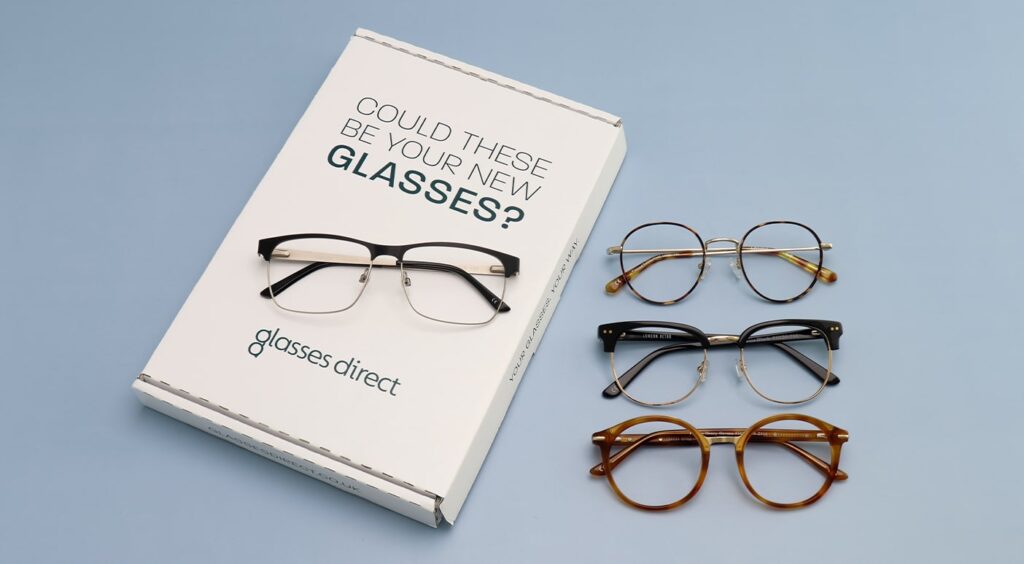
Do you believe Glasses Direct is still successfully following your mission to offer affordable eyewear to its customers?
The business actually feels like it has got closer over time to my initial vision. There was a period of drift, if I’m honest. I think the original vision of providing very high quality, mostly own-branded glasses at affordable prices and just doing that really well is something that yourselves and Essilor Luxottica have executed fantastically. When I look at the site now, I really do think it is closer to the original vision that I set out in 2004 than it’s ever been.
The value is still there. Great glasses are centre stage. Great prices are centre stage. Everyday glasses and everyday value are centre stage. I always thought if Glasses Direct could do that well, then that itself is an amazing mission. I think you are doing a great job of that by just zeroing in on what Glasses Direct is and what it was is still just so important.
Did you imagine the company would still be running successfully after 20 years?
Yes. I was always interested in building a durable business. That notion of building something to last was always important to me. There were others who said we might be a flash in the pan, but I never had any doubt that Glasses Direct was here to stay. I am glad Glasses Direct not only proved them wrong but also established the whole online channel for optics as permanent globally. There are great businesses across the globe doing interesting things with the optical channel. For me, it is very satisfying to see the innovation that is happening in all regions with different brands not just Glasses Direct. To think we had a part in creating the category and not just the business is amazing.
We also had an amazing sense of purpose, which I think comes through on the site now. Some of our customers told us they had not been able to afford glasses to date and they had struggled on with eye issues that they had because they hadn’t been able to access glasses. And because of Glasses Direct, they could access the eye correction they needed. For other people, the proposition meant they could wear glasses and express themselves in new ways. Making glasses more accessible and affordable online was and is an incredible purpose to a business in and of itself. That ability to provide people with an eye health solution that they need, at a price they can afford, from their home. Well, that is something I remain incredibly proud of and it is something that underpins Glasses Direct and the category.
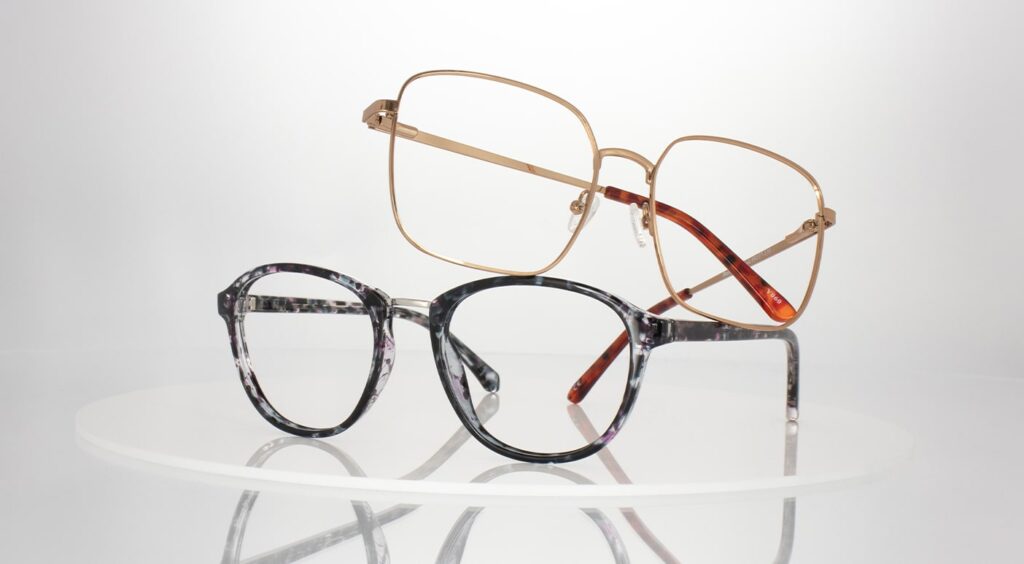
How do you see eyewear developing in the future?
Price will remain a key enabler, whether it’s to a first pair of glasses that solves increasing macular degeneration, or a pair of glasses to suit individual wardrobe style.
When I look at the category, I also see so much exciting stuff going on with frame design. I think fundamentally great glasses have got to look great so that people feel great. Nothing changes the way you think about yourself, the way you express yourself and the way people perceive you than wearing a well-designed and chosen pair of glasses. When I look to the future, I think glasses will be used in new ways for expressing yourself. Innovative new designs, figureheads and collaborations in the industry, such as the recent Roger Federer x Oliver Peoples, are going to be really important in giving everyone the ability to wear something timeless, iconic and expressive.
I also see the retail channel developing as well. When you think about how people buy glasses online, actually there is a lot of room to innovate still. When you consider how people shop together for high-touch products and how they engage and handle product when shopping, there are plenty of opportunities to further tune the proposition towards the customer’s needs, create new, increasingly immersive and social-shopping experiences.
While glasses must first and foremost look great and deliver vision correction, they are going to have new functions and use-cases as well. If you think about Nuance glasses, which EssilorLuxottica brought out at CES this year, it is incredibly exciting for those with partial hearing and shows how technology can be such a power for good. It can bring forward really people-centric innovations in eyewear. I anticipate the smart glasses category will continue to solve for people, in new, helpful ways, which is something I have a personal interest in, at Google.
*Glasses Direct has focused on Home Trial over virtual mirror technology in recent years. However, we’re hoping to eventually reintroduce an improved virtual try-on experience to the site in the future.

